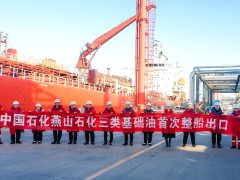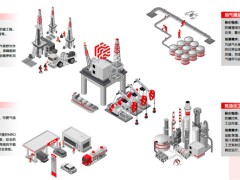• 世界将能够快速有效地摆脱化石燃料的说法在今年遭到了严重破坏。
• 与此同时,气候变化的问题只会越来越严重,减少排放的必要性是不可否认的。
• 最终,在确保能源安全的前提下,切实减少碳排放是唯一的出路。
据美国油价网7月11日报道, 去年在格拉斯哥举行的第26届联合国气候变化大会上,与会国家承诺将减少对煤炭的依赖,但自那以来,这一承诺取得的进展非常有限。与此同时,国际能源署(IEA)在其题为《2050年净零排放》的年度报告中警告说,如果世界要在2050年前实现净零排放目标,就不应该在石油、天然气和煤炭开发方面进行新的投资。那是在2021年。今天,洪涝灾害正在席卷孟加拉国、印度等国。粮食短缺正在发展中国家造成问题,秘鲁、斯里兰卡和厄瓜多尔等国遭受大规模抗议活动和政治不稳定。与此同时,前所未有的热浪造成了大规模的停电。
7月早些时候发生的洪涝灾害已造成101人死亡,大约700万孟加拉国人仍然需要帮助。与此同时,印度的洪水已经导致数百万人流离失所,另外还有水传播疾病的挑战。与此同时,由于能源短缺,巴基斯坦遭遇了创纪录的热浪,这意味着今年早些时候,一些地区每小时都在经历用电限制。
这些发展给全球政策制定者带来了挑战,一方面,他们强调了应对气候危机的必要性,另一方面,他们也强调了一个事实,即突然的转型将是致命的。
极端天气,如热浪和洪水,或干旱,如笼罩加州的气候变化,凸显了解决气候变化问题的紧迫性和重要性。然而,这不太可能通过减排来实现,特别是根据《经济学人》的数据,目前全球排放量比疫情前高出0.6%。
在世界遭受气候变化之苦的同时,由于地缘政治冲突和投资不足,能源短缺也在加剧。这就是现代政治决策的困境所在。
世界需要无论排放多少都会消耗的能源。然而,如果这种能源的排放足迹很小,对地球会好得多。问题是,我们现有的低碳能源还不足以取代化石燃料。因此,现在也许是时候开始考虑适应变化的气候,而不是自欺欺人地认为我们可以在几十年内逆转数百年的进程。
当前,能源安全优先于减排。作为净零排放运动的倡导者之一,德国正在紧急建设液化天然气进口终端,并增加燃煤发电,以弥补产能大国天然气预期的短缺或中断。
与此同时,美国将访问沙特阿拉伯,虽然官方说法是他去那里不是为了要求更多的原油,但人们普遍认为,原油是美国这次访问的关键因素。在通货膨胀率达到40年高点的同时,美国人开始厌倦创纪录的高油价,政府需要对此做些什么。减排已被放在次要位置,但很快将再次成为重点。
所有这些都指向一个事实:人类在一段时间内仍将需要能源。由于大部分能源仍然来自并将继续来自化石燃料,现在可能是时候改变气候变化的调子,让它突然转型到更现实的东西。
在这方面,埃尔南德斯分析公司负责人、驻苏格兰商业大使提出的解决方案很有启发意义。能源篮子方法采取一种非二元方法,提倡建立一个传统燃料和可再生能源混合的电网,以完全转向可再生能源为长期目标。它也迎合了目前的主要政策问题,即应急计划方面的能源管理。
此外,两位作者认可的另一种方法是,认识到途径的重要性,并转向能源转型多元化。这意味着世界应该预料到,不同的国家将有不同的途径来实现净零排放。
对全球能源转型采取一种全面的方法是当务之急,当前的地缘政治紧张局势给了我们一个非常需要的现实检查。
李峻 编译自 美国油价网
原文如下:
Solving The Energy Transition Conundrum
· The narrative that the world will be able to quickly and effectively move away from fossil fuels has been majorly undermined this year.
· At the same time, the problems of climate change are only getting worse and the need to reduce emissions is undeniable.
· Ultimately, a realistic approach to reducing emissions while ensuring energy security is the only way forward from here.
The COP26, held in Glasgow last year, saw participating countries pledge that they will wean themselves off coal, a promise that has seen very limited progress since. Meanwhile, the IEA in its annual report titled Net Zero by 2050 warned that if the world is to reach the net-zero goal by 2050 there should be no new investments in oil, gas, and coal developments. That was in 2021. Today, floods are sweeping Bangladesh, India etc. Food shortages are causing problems in the developing world with countries like Peru, Sri Lanka, and Ecuador suffering from large-scale protests and political instability. Meanwhile, heat waves of unprecedented magnitude have caused blackouts on a massive scale.
about 7 million Bangladeshis are still in need of help in the aftermath of floods that killed 101 people earlier this month. Meanwhile, floods in India have displaced millions and there has been an additional challenge of water-borne diseases.
Meanwhile, Pakistan has been baked by a record heat wave amid an energy shortage which meant that some areas were experiencing load-shedding every hour earlier this year.
These developments present a challenge to global policymakers as, on the one hand, they highlight the need to address the climate crisis and, on the other hand, they have also emphasized the fact that an abrupt transition will prove fatal.
Extreme weather such as heat waves and floods—or droughts, like the one looming over California—highlight the urgency and significance of addressing the issue of climate change. Yet, this is unlikely to happen through emission reduction, especially since, per The Economist, the amount of global emissions is now 0.6 percent higher than before the pandemic.
While the world suffers from the changing climate, it is also suffering a deepening shortage of energy due to geopolitical conflicts and underinvestment. This is where the dilemma of modern political decision-making lies.
The world needs energy that it will consume regardless of emissions. Yet it would be much better for the planet if this energy comes with a small emission footprint. The trouble is that the low-carbon energy we already have is not performing well enough to replace fossil fuels. It might, therefore, be time to start thinking about adapting to the changing climate rather than deluding ourselves that we can reverse processes that took hundreds of years within a couple of decades.
Right now, energy security is taking precedence over emission reduction. Germany, one of the champions of the net-zero movement, is urgently building LNG import terminals and increasing coal power generation to make up for an anticipated shortage ofgas.
Meanwhile, the U.S. is traveling to Saudi Arabia and while the official line is that he is not going there to ask for more oil, it is widely accepted that oil is a key factor in the visit. Americans are beginning to get tired of record-high prices at the pump while inflation runs at 40-year highs, and the Gov needs to do something about it. Emissions reduction has taken the back seat, but it will soon become a major focus again.
All this points to the fact that humankind needs energy. Period. And because most of that energy is still coming from and will continue coming from fossil fuels, it may be time to change the climate change tune about an abrupt transition to something more realistic.
免责声明:本网转载自其它媒体的文章及图片,目的在于弘扬石化精神,传递更多石化信息,宣传国家石化产业政策,展示国家石化产业形象,参与国际石化产业舆论竞争,提高国际石化产业话语权,并不代表本网赞同其观点和对其真实性负责,在此我们谨向原作者和原媒体致以崇高敬意。如果您认为本站文章及图片侵犯了您的版权,请与我们联系,我们将第一时间删除。







